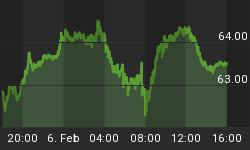Based on many pronouncements by economic policy makers, reams of articles by the top financial journalists and near continuous discussion on the financial news channels, it appears that the quantitative easing juggernaut that has steamed the high seas of macroeconomics for the last three years is finally pulling into port...supposedly for the last time. According to the dominant narrative, QEI and QEII helped stabilize the economy during the Great Recession and now the Federal Reserve is ready to take the training wheels off. If so, the economy may need a helmet because there is virtually no chance that it can avoid major contractions without central banking support.
It is ironic, but there is no doubt that the proposed removal of artificial stimulus would be the best thing for the country in the long term. But very few observers understand how it will inflict short term pain. So confident is the Fed that earlier this week, St. Louis Fed President James Bullard indicated that any notion of additional quantitative easing is off the table. In fact, he said the central bank may tighten policy in 2011 by allowing its balance sheet to shrink. Investors would do well to remember that Bullard was the first Fed official to support the second round of bond purchases now known as QEII. It is likely that he will make a similar reversal if the economy shows any signs of weakening in the months ahead.
Fed policy makers like Bullard are guilty of reckless optimism if they believe the economy has truly healed. The evidence of a pending slowdown is abundant. The Empire State's business conditions index decreased 10 points from April to just 11.9 in May. Meanwhile, the prices paid index rose sharply, with about 70% of respondents reporting price increases for inputs, and none reporting price reductions. That inflation index advanced 12 points to 69.9, its highest level since mid-2008. And things are even worse in Philadelphia. The Federal Reserve Bank of Philadelphia's general economic index fell to 3.9 in May from 18.5 a month earlier.
Turning to the labor front, the four week moving average of initial jobless claims rose to 439,000 last week, from 437,750 in the week prior. Of course, the real estate market continues in its malaise. According to the National Association of Realtors, April existing home sales dropped to an annual rate of just 5.05 million. Prices continue to set new post crash lows, with prices down 5% YOY. Despite the fact that the government still accounts for nearly the entire mortgage market and the Fed has rates near zero percent, inventory of existing homes jumped from 3.52 to 3.87 million units and the months' supply climbed from 8.3 to 9.2. Does it sound like the economy is ready to get up on its own two feet?
But the Fed is under pressure to do something about the growing inflation threat. Year over year increases of CPI, PPI and Import prices are 3.2%, 6.8% and 11.1%, respectively. As price increases hit middle class consumers, the Fed is facing intense pressure to push down inflation by draining the balance sheet and raising interest rates. It's a dangerous game.
In its simplest terms quantitative easing is nothing more than the government's attempt to boost consumption by borrowing trillions of dollars. Over the long haul this is no way to run an economy, and a sustainable recovery will be impossible as long as such borrowing continues. But in the short term, a cessation of government borrowing will lift the veil on our artificial economy, and reveal how dependent we have become. U.S. fiscal and monetary austerity will cause GDP to fall as the deleveraging process that was interrupted in 2009 returns with a vengeance. I do not believe the Fed or the Administration has the intestinal fortitude to let that happen.
A bona fide Fed exit from interest rate manipulation means that both nominal and real interest rates would rise significantly. The ten year note yield is less than half its average over the past 40 years. Normalization of rates would provide a serious headwind to markets and the economy.
The high leverage that brought on the Great Recession has not been addressed in the slightest. U.S. household, corporate and government debt as a percentage of GDP has never been greater. So, if interest rates were to rise, why should we expect a different result from what occurred in 2008?
Whether or not the Fed is bluffing has dramatic implications for investors and the country. Mr. Bernanke will eventually have to choose whether he wants another depression or more of the inflation the Fed is so adept at causing and then denying.
Subscribe to Euro Pacific's Weekly Digest: Receive all commentaries by Peter Schiff, Michael Pento, and John Browne delivered to your inbox every Monday.
Click here for free access to Euro Pacific's new special report: What's Ahead for Canadian Energy Trusts?
Be sure to pick up a copy of Peter Schiff's hit economic fable, How an Economy Grows and Why It Crashes.















